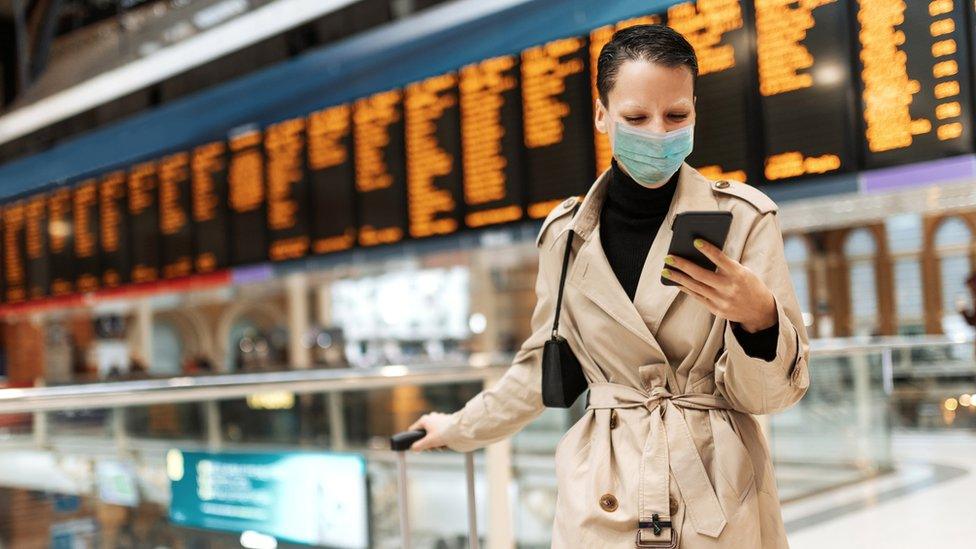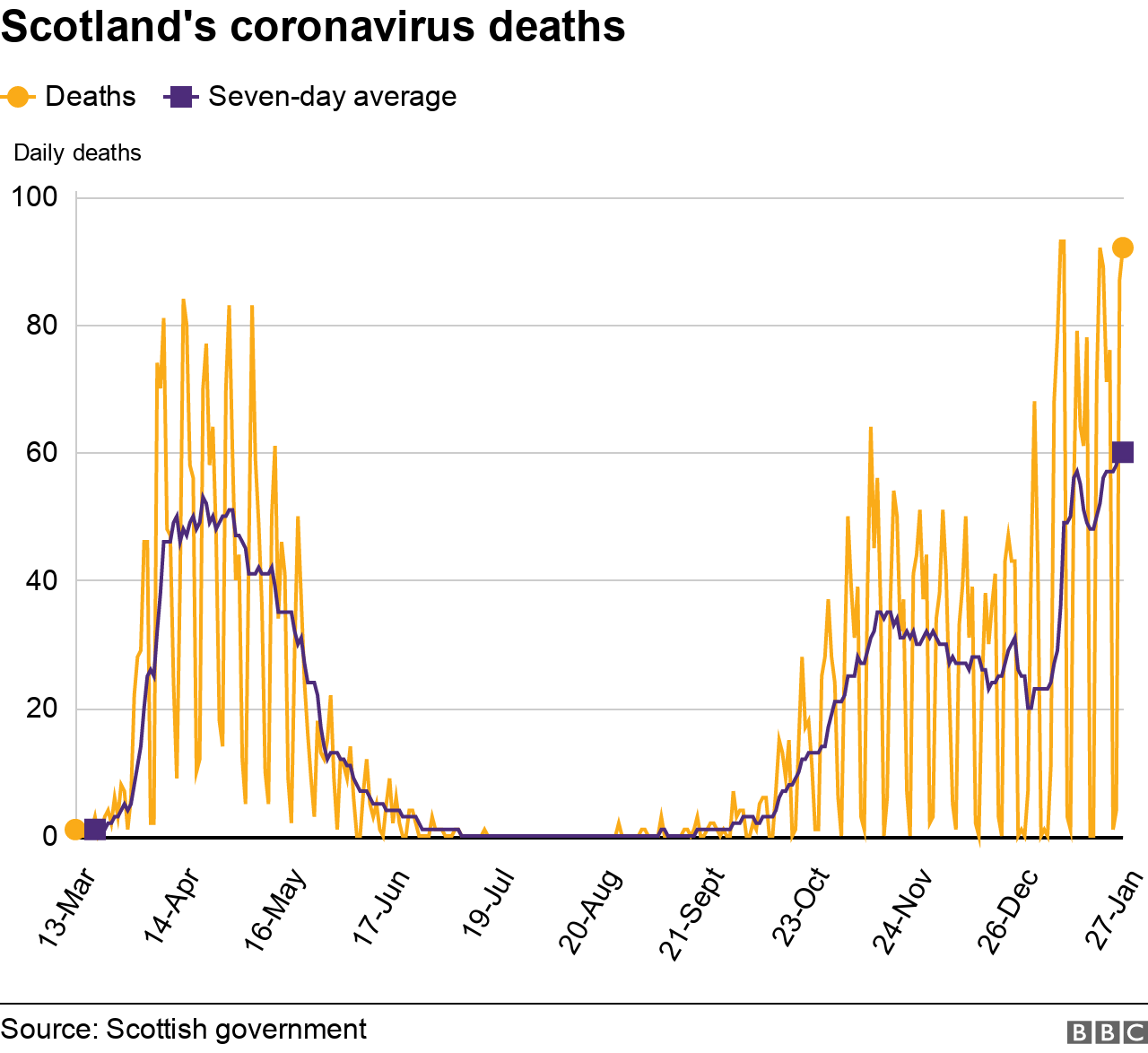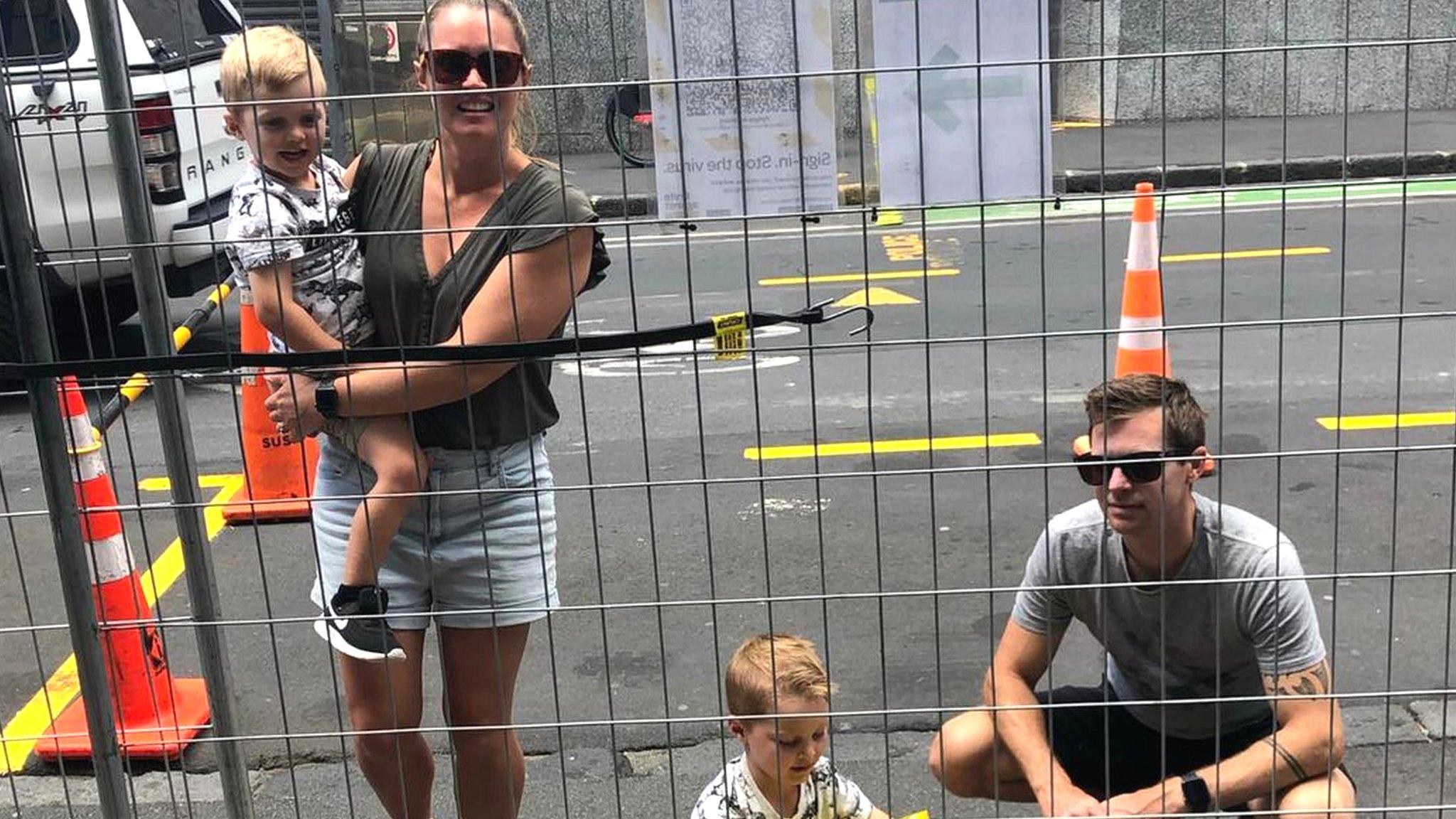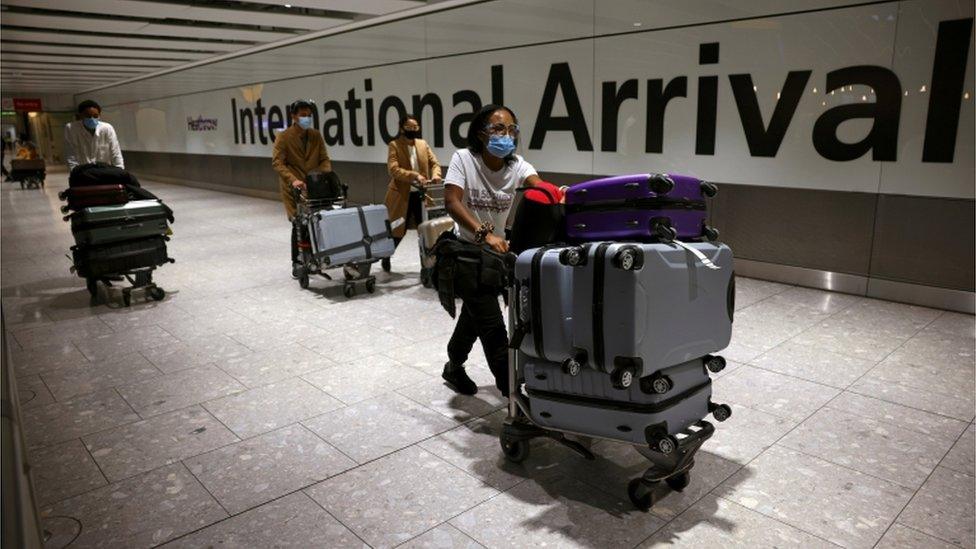Covid: Scotland 'could go further' on quarantine rules
- Published
- comments

Scotland is to initially follow UK travel rules, but could introduce stricter measures next week
Scotland could introduce tougher quarantine rules for international travellers than other parts of the UK, the first minister has said.
Prime Minister Boris Johnson has announced that UK arrivals from regions with new virus variants will be provided accommodation for 10 days to isolate.
Nicola Sturgeon said she was "concerned the proposal does not go far enough".
Scotland will "initially emulate" the UK government measures, she said.
But further Scottish rules will be set out next week if the four nations do not reach an agreement on a UK-wide approach - which Ms Sturgeon said would be preferable.
The prime minister has said there are 22 countries with the risk of known new variants, including the South American nations, Portugal and South Africa.
Mr Johnson said anyone travelling from these countries who cannot be refused entry to the UK - such as British citizens - will be provided accommodation for 10 days to isolate "without exception".
They will be met at the airport and transferred to specific places, such as hotels.
Further details of the plan are expected to be outlined by Home Secretary Priti Patel later.
However Ms Sturgeon - who was briefed on the UK government proposals in advance - told her daily coronavirus briefing that a "comprehensive system of supervised quarantine" was required in the next stage of the pandemic.
And she said she was "seeking urgently" to persuade the UK government "to go much further" while providing additional support to the aviation industry.
The first minister said: "Our best route back to greater domestic normality right now, as we continue with the vaccine programme, is firstly to suppress the virus here to as low as level as possible - as we did over the summer - then give ourselves a better chance of controlling it through test and protect, and next by doing much more than we did last year to protect our borders."
The Welsh government has also said the PM's proposals do not go far enough.
Overseas holidays
When questioned by journalists, Ms Sturgeon said she would "not give arbitrary dates" on when the travel restrictions might come to an end.
But she said people "might not be able to go on holiday overseas" in order to "get domestic normality" back - including the reopening of schools and allowing people more interactions with loved ones.
"I'm not saying that's easy but maybe that might be a price we all need to be prepared to pay," she added.
Scottish Conservatives leader Douglas Ross told the BBC that he believed that countries with higher infection rates and strains with quicker transmission should be prioritised.
"We've got to look at dealing with this in stages," he said. "This doesn't need to be dragged into a Scotland versus England issue or the rest of the UK issue.
"This is as big an issue within Scotland. We shouldn't be moving around local authority areas so whether it's north or south of the border or within our own communities we've got to reduce travel as much as possible."

It comes as the deaths of a further 92 people who had tested positive for coronavirus were recorded in Scotland - bringing the total to 5,888.
The total number of deaths across the UK by that measure passed the grim milestone of 100,00 on Tuesday.
Ms Sturgeon said she was "truly sorry" for any mistakes that had been made in the handling of the pandemic.
She added: "She said the death toll should make all political leaders "think very hard about what more we could have done and what lessons we must continue to learn".
She added: "I know that I, and everyone in my government, have tried every day to do everything we possibly can.
"But I don't think any of us, reflecting on numbers like these, can conclude that we have always succeeded."
A total of 1,330 new cases were recorded in the last 24 hours, representing 6.2% of people tested.
Meanwhile 462,092 people have received the first dose of the vaccine in Scotland - including 56% of the over 80s and 95% of people in care homes.


Related topics
- Published27 January 2021

- Published27 January 2021
